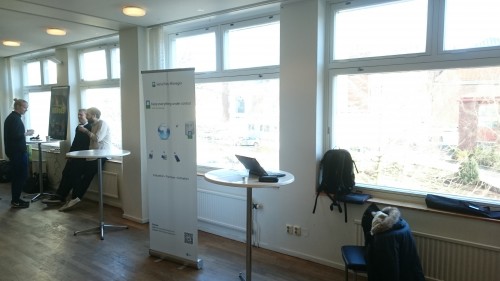Today, I was standing the whole day (ok, not really, from 10:00-14:30) representing SKM (Serial Key Manager)
I think the event was quite fun, and I got to meet many other start ups. There was a broad range of fields, from hardware related projects to advanced algorithms in machine learning and artificial intelligence.
Reflections thusfar
One of the things I’ve learned throughout this year is that whenever you talk to business people, you need to make things really simple (… really really simple). As a computer scientist/engineer, this is hard, since words that are close to my heart might not be well understood by my counterpart. And, when this happens, they will get confused and not select your product. Here are some of my advice to computer scientist (mainly students, since I’m a student too 🙂 ) (note, those marked with SKM are real examples that I tend to use):
- use metaphors and similes: eg. it’s a toolbox for developers (SKM). or our product is like Facebook but for business people.
- use examples, but not too technical. if possible, avoid all the technological terms: eg. using this program, advertisement agencies can express their strategy and get a working prototype in minutes. or you can access the information anytime, anywhere on the globe or all programs, such as MS Word and Photoshop, require you to enter a license key. so, a part of the application takes care of that. we develop that part of the application, so that it can be outsourced (SKM).
- use story telling for use-case examples and breaking the ice: I’m still in the phase of learning its effectiveness, but it does seem to be really powerful if you want to connect with other people and make the point of your story remembered.
- ask for feedback: most of the ideas above were suggested by business people that I’ve talked to. This is active feedback, and you should listen to it and iterate. When talking to potential customers in real life, I don’t tend to receive this feedback, especially in Sweden where everyone wants to be nice and tell good things only. However, my advice here is to keep in mind that body language reveals most of it. Sometimes, I can see people telling positive things but their body language uses defensive, negative gestures. This is what we call gut feeling. However, substantial research has been done in this area.

